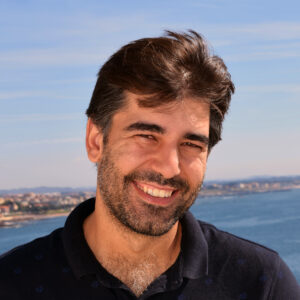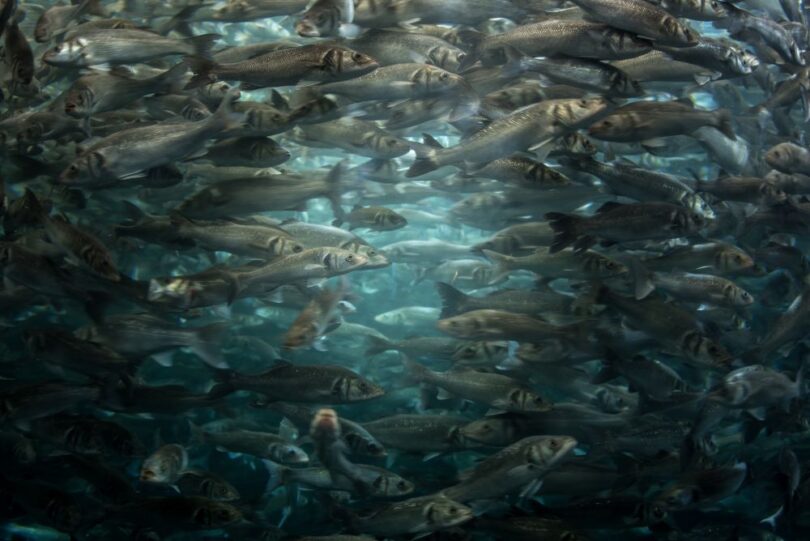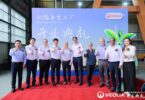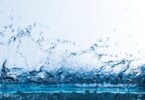
Dr. Tânia Pereira, Project Manager
The Interdisciplinary Centre of Marine and Environmental Research (CIIMAR) is a leading research and advanced training institution affiliated with the University of Porto. CIIMAR’s mission is centred on cultivating groundbreaking ideas to ensure the sustainability of the ocean, while simultaneously addressing the future needs of society through innovative solutions. CIIMAR encourages individuals to join their projects focusing on making a lasting impact on the well-being of the planet.
Anticipated partnerships with top-tier global research institutions, as part of the GRINNAQUA consortium, are poised to impart essential impetus in elevating the scientific prowess and innovation capabilities at CIIMAR. This enhanced expertise can subsequently be disseminated to benefit the aquaculture industry in Portugal and Europe. GRINNAQUA stands for Green Innovation Strategies for Animal Health Management, aiming to foster sustainable advancements in the aquaculture sector.
Q1) Can you provide an overview of the GRINNAQUA project and its objectives within the context of the Farm to Fork Strategy?
Aligned with the goals outlined in the Green Deal and Farm-to-Fork strategies, GRINNAQUA will contribute to the ongoing effort to improve animal welfare practices within the aquaculture sector. Through its activities, it aims to elevate the standards of care for animals by reducing the reliance on veterinary drugs, especially antimicrobials. By doing so, GRINNAQUA will contribute to the effort of mitigating the environmental footprint of the industry.
The project is also aligned with the ethical principles outlined in the 2009 Treaty of Lisbon, which acknowledges the sentience of animals and the responsibility of the EU and its Member States to proactively prevent any mistreatment, pain, or undue suffering.

Dr. Benjamin Costas, Project Coordinator
Q2) How does GRINNAQUA contribute to enhancing CIIMAR’s research profile and innovation capacity in the field of aquaculture?
GRINNAQUA is also collaborating with the Portuguese and Northern Region Smart Specialization Strategies since aquaculture resources and their sustainable management and exploitation are defined as a priority for 2021-2027. In this way, the project will contribute to the improvement of the aquaculture sector, and CIIMAR in particular will be better prepared to tackle future challenges that the aquaculture industry may face, such as developing and improving blue technologies and, alongside improving animal welfare, reducing industry losses from diseases or stress and working to develop high-quality products for human consumption.
Q3) What strategic partnerships and strategies are used to align with the goals of GRINNAQUA and CIIMAR’s research?
The partnership with well-known institutes in European aquaculture research, with extensive knowledge in relevant fields, will boost CIIMAR’s ascension to scientific preeminence and increase competitiveness. The Spanish institution INIA-CSIC is skilled at navigating vaccination procedures and has a deep understanding of the subtleties of fish-acquired immunity.
The University of Bergen (Norway) is highly competent in the area of animal health and disease diagnosis, including the application of genetics, while the Roslin Institute, at the University of Edinburgh (UK), has invaluable knowledge in the complex world of genetics and animal breeding. This partnership is likely to be long-lasting and create synergies that significantly reinforce a more resilient and sustainable aquaculture landscape throughout Europe.
To strengthen the relationship between the partners, PhD students are directly involved in the project with joint supervision between CIIMAR and at least one of the partners. This approach aims to improve the profile of early-stage researchers by requiring them to participate actively in GRINNAQUA’s joint research activities. Within the exploratory portion of the project, several students are being co-mentored, by CIIMAR researchers and international experts in partnership, with the scope of MSc and PhD programmes at CIIMAR.
Joint mentoring is expected to open perspective and opportunities for young researchers to develop skills, maturate their scientific vision, and establish shared views of where and how to direct their future work. GRINNAQUA also concentrates efforts on talent recruitment, acquisition, and networking through project dissemination in strategic aquaculture congresses, such as the European Aquaculture Society Congress. This will contribute to capturing talented research staff who may apply to Marie Skłodowska-Curie Individual Fellowships and other funding opportunities.
Additionally, efforts for student recruitment will be applied by awarding the best international master thesis, congress best oral presentation in the field, and others. Such initiatives are expected to increase the consortium’s competitiveness in the academic landscape by improving the likelihood of successful grant applications and the institution’s capacity to capture talent.
To enhance the level of excellence of CIIMAR’s staff and raise their research profile, certain actions have been thoughtfully developed. To foster a culture of ongoing learning and innovation, the collaborating partners have prepared three specialised training opportunities, in “omics tools for aquaculture”, “fish vaccination” and “intellectual property protection and valorisation”, and are currently preparing two more training sessions, one for 2024, and immersive Summer schools, the first of which will take place in Edinburgh in 2024.
Furthermore, senior researchers, technicians, and administrators are specifically targeted through planned visits by CIIMAR staff to partner institutions’ facilities to ensure an extensive exchange of knowledge and best practices that will provide CIIMAR with an opportunity to learn by example and improve its procedures.
Q4) How does GRINNAQUA address the prophylactic effects of functional diets in rainbow trout and Atlantic salmon against hemorrhagic septicemia virus and sea lice parasite, respectively?
A collaborative effort that makes use of the institutions’ combined scientific and technical resources is at the heart of the research agenda.
The high economic impact of viral and parasitic outbreaks in aquaculture supports the need for the development of prophylactic and therapeutic solutions on the matter. Hence, GRINNAQUA gathered the expertise from all partners on fish nutrition and health, host-pathogen interactions, gene editing, and immunity to synergistically develop biotechnological strategies and feeding protocols to improve fish local and systemic responses to viral and parasite infections, which is an important step forward in the development of practical solutions to improve animal health and welfare in an aquaculture setting.
The project intends to bring insights into the preventive potential of functional feeds for shielding rainbow trout against the haemorrhagic septicaemia virus and addressing the infestation of Atlantic salmon with sea lice parasites.
Q5) How does GRINNAQUA aim to increase stakeholder interaction and mobilisation, strengthening CIIMAR’s market-driven research and innovation capacity at both national and international levels?
Stakeholder collaboration and knowledge transfer between research and industry are seen as key to tracking market trends and needs, identifying opportunities for innovative technologies and products, and fast-tracking product commercialisation and the impact of the emerging Aquaculture SMEs. The integrated experience of the four consortium members in the different areas of aquaculture will improve the individual innovation capacity.
Having the stakeholders involved from the beginning of the research assures that the results will have a potential market value and impact on the industry which can be directly assessed by the industrial partners.
Beyond the scientific domain, this proposal casts a strategic vision for enhancing stakeholder engagement and mobilization, facilitating the alignment of CIIMAR’s objectives with tangible scientific accomplishments. This proactive approach reinforces CIIMAR’s position as a dynamic player in market-driven research and innovation, fostering an environment that heightens its competitive edge on both national and international platforms.
Q6) How does GRINNAQUA align with the broader goals of CIIMAR and the blue revolution in aquaculture, and what milestones are anticipated in achieving these objectives?
CIIMAR has the potential and the ambition to be an international excellence centre and a lead player in marine sciences, more particularly in the area of Aquaculture and Animal Health. Despite its location in a low R&D Member State, the centre has experienced in the last years an increase in its dimension and is recognised for having made large advances in its research performance and scientific productivity.
Nevertheless, there is much room for improvement in terms of cutting-edge research and increased innovation capacity, particularly in terms of technology transfer and knowledge translation into patents, products, and other applied outputs such as spin-offs.
The establishment of active clusters and the involvement in international networks of excellence, bringing together research centres, universities, industry, and other stakeholders is critical to the success of this effort and the development of a sustainable aquaculture industry. Thus, promoting innovation via aquaculture-related activities is critical for the sustainable use of these resources as well as the encouragement of economic growth, which is required in countries such as Portugal.
Conclusion
Driven by the pursuit of excellence, CIIMAR seeks to enhance its research and innovation capacity by raising its staff´s research profile, increasing its involvement in high-quality international consortia, enhancing its competitiveness in attracting talent as well as public and private funding, and involving the industry in research planning to drive growth and job creation across the sector.
The Twinning program can provide the opportunity to properly address these shortcomings, increasing CIIMAR’s capacity for innovation and positioning the organization as a leader in bringing about the blue revolution in aquaculture
Learn more: grinnaqua.eu and www.ciimar.up.pt







